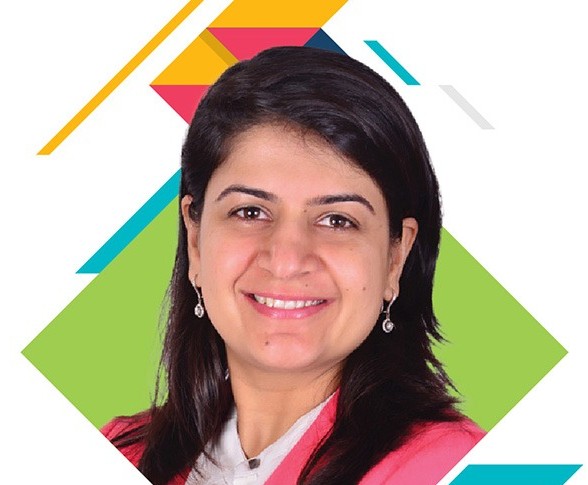Truecaller is on a mission to build trust and help keep communication safe and efficient as
there is a spurt in digital interactions. As part of the strategy to take proactive preventive
measures to make online communication safe, Truecaller has visualised the #TrueCyberSafe
campaigns. In an interaction with N V Vijayakumar, Truecaller Director of Public Affairs in India Pragya Misra explains the wider strategy of the company with the Indian audience to engage with civil society.
1. Truecaller is omnipresent in India as the app is helping to weed out unnecessary calls and SMSs. Can you explain the role of Truecaller in India?
Our core competence lies in the calling and SMS space. Truecaller is akin to somebody knocking on the door of your home in the real world. Would you just open the door for anyone? We have cameras or we look through the keyhole before opening the door. Similarly, on Truecaller we give you the ability to know who is calling you so that you can take a considered decision on whether you want to take that call or not. But it’s only through the help of the entire community of Truecaller users that it can identify spammers, fraudsters or scammers. For instance, if a person claims to be a credit card seller, people from the community will begin marking him/her as spam, and very soon the caller id of that person will appear in red with the spam activity of the contact. That is how the community of responsible citizens helps in warning others about fraud and spam along with our sophisticated AI ML that is constantly getting sharper in this identification.
2. Building trust in the community where the company is growing is a challenge, especially where cyber hygiene is very minimal. How are you planning to engage with the Indian user base to bring behavioral change while becoming digital savvy?
Truecaller’s mission is to build trust in communication by making it safe and efficient. To accomplish that goal, we have partnered with Cyber Peace Foundation, which is a civil society organization and a think tank of cyber and policy experts. With this partnership, we aim to reach out to about 16 lakh people in about five regions of the country so that we can train them on how to stay safe while communicating online. Truecaller focuses on fraud, scams, and spam that takes place through phone and SMS. Unfortunately, the scams are no more restricted to just phone and SMS.
During peak Covid times, we saw a whole different wave of scams, ranging from instances like people claiming to have Remdesivir, or asking to transfer Rs 10,000 to book a hospital bed. We played our part of being a responsible platform through meaningful collaborations with the relevant authorities by marking these numbers as Covid Fraud and Scam within our app to help people stay protected from potential frauds. But it was clear that it is significant for people to understand what digital etiquette are so that they can navigate safely. Today, we are moving to online platforms rapidly, hence through #TrueCyberSafe campaigns, we want to create awareness about prevention and measures that people can take to make their online communication safe.
3. Okay, so you mentioned digital etiquettes. Can you elaborate a bit on the digital etiquettes that you are targeting?
Through these training sessions, we talk about the kinds of threats one faces and what actions one can take. We also create awareness about the crucial helpline numbers that everyone should be aware of to report any kind of harassment. Let’s say if it’s around financial fraud, the government has come up with 1930 for easy reporting. A lot of frauds these days are taking place through SMS, where the fraudsters are putting headers of banks and those SMSs are landing in your inbox. We have witnessed people falling prey to OTP and KYC-related scams because they were not cautious. The RBI and police are running campaigns on not sharing OTP and we at Truecaller want to bolster the government efforts by spreading awareness on these critical issues through #TrueCyberSafe so that this message reaches more people. We hope to help create responsible digital citizens through this program. This year, we aim to reach as many as 16 lakh people and we will continue to build on this initiative in the upcoming times to ensure user awareness and facilitate them in staying safe.
4. The cyber-world is growing exponentially in the country, and we are known for our unique user behavior patterns. Can you elaborate on the cyberspace ambassadors who are working here in expanding the reach of the community-building initiatives?
Cyberpeace Foundation has an ecosystem of Cyberpeace cops and a whole volunteering community. We urge every person who attends our training sessions to tell a minimum of five other people about their learnings so that we can spread the message wider and become #TruecyberSafeambassadors who can go out and talk about what online safety can look like. There is a community element along with our partners and with what we are doing in the digital world.
5. India is a land known for its diversity and we have multiple languages for communication. Here central and state governments have larger say in policy matters. How are you trying to partner with the state government to further enhance this initiative?
Truecaller engages with the central, state government at local levels to drive this initiative.
We are working with DCP Bangalore city crime Mr. B S Angadi. We are trying to help the local law enforcement in upskilling themselves so that we can make an impact at the root level. For example, when we launched our first training as part of the #TrueCybersafe campaign in the northeast (Guwahati), we had police officers from Assam, Meghalaya, and Arunachal Pradesh along with them. about 800 people in the auditorium. The training also had participation from college students, startup founders, and people from the banking industry.
While we might be in the industry, sometimes we are not aware of the kind of frauds and scams that are taking place because this is a constant catch-up game. If today the government says these are the five kinds of scams, the scamsters will come up with five new ways to scam you. Hence, to be efficient in our messaging, we want to take it to tier two, and tier three cities and do some online sessions in the local languages as much as possible so that we can reach the community and increase awareness of these challenges within the community.
6. So right now, how many States have you identified till now?
Truecaller is in a space where people are getting some intelligence to take preventive action. We have been doing this along with our cyber warriors. We’ve done this in Delhi and most of the northeast. We’re doing it in Karnataka currently. And then there are upcoming training sessions in Rajasthan, Orissa, and other States.
7. The post-pandemic world has brought a different scenario for all business verticals. How Truecaller is looking at the opportunities?
The post-pandemic world is very different at many levels. However, Truecaller looked for
opportunities to help people even during the pandemic One of our initiatives during Covid was tying up with the home ministry. When Covid was at its peak, a lot of scams happened around oxygen concentrators, hospital beds, medicines, Remdesivir, etc. Fraudsters took advantage of our pain and need. Eventually, people started filing FIRs. The home Ministry provided us with a long list of numbers against whom FIRs had been filed. Truecaller marked them as covid fraud, spam, and scam within our ecosystem. This way we keep working with the government and constantly collaborating with them so that our community continues to stay safe.
Truecaller also offers business verification where the users can see the verified businesses in green colour and can easily differentiate between spam, business and personal calls. For example, When a bank customer care person calls a user, it will appear on the screens in green colour with the original logo, because it is verified by Truecaller. This is what we mean when we say our mission is to make communication efficient and safe.





